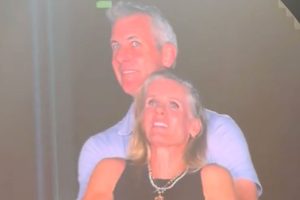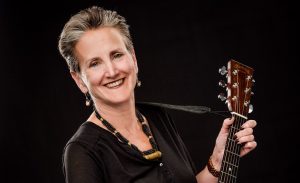Author Vivi Lachs brings what was once London’s bustling Jewish East End to life in her new book about the Cockney-Yiddish songs and poems she discovered during the 10 years she spent researching the subject.
The book, Whitechapel Noise: Jewish Immigrant Life in Yiddish Song and Verse, London 1884–1914, grew out of some 80 songs and poems she found by scouring London’s historical Yiddish newspapers and by tracking down Yiddish penny songsheets from the period.
“What’s been written in Anglo-Jewish history is something very different because Anglo-Jewish history is using much more official sources and they’re not using Yiddish sources,” Lachs said in an interview with The CJN.
Waves of eastern European Jews immigrated to England at the end of the 19th century, settling in London’s impoverished east end neighbourhoods of Whitechapel and Stepney. They transformed these rough districts – Jack the Ripper walked the streets of Whitechapel in 1888 – by starting businesses, building synagogues and opening Jewish schools, Yiddish theatres and music halls.
Anglicized Yiddish – known as Cockney Yiddish – was the spoken language of the Jewish east end. Cockney Yiddish is scattered with anglicisms, such as “votsh un tsheyn” for “watch and chain,” and “bizi un slek,” to describe busy and slack periods in sweatshop work.
Of the 80 Yiddish songs and poems that Lachs found, some 55 of them mention sex. This treasure trove of songs and poems is the stuff of popular culture, she said.
“If you look at popular culture, you get a very different way into social history, because it tells you … what are the things that are interesting people, what they’re talking about, what they’re arguing about, what they’re worried about – it’s all that daily domestic material, of who they’re laughing about, what they’re angry at.”
READ: JAZZING UP THE TORONTO MUSIC SCENE
In the song Vos Geyst Nisht Aheym, Sore-Gitl? (Won’t You Come Home Sarah-Gitl?), which is set to the music of Won’t You Come Home, Bill Baily, Sarah-Gitl is at the pub kissing men, while her husband throws a tantrum. According to Lachs, men struggled to be the breadwinners in their new homeland, while their wives worked long hours. “The failure of their traditional role as patriarch gave them a sense of powerlessness and they may have taken cathartic relief in recognizing a scenario in which a male protagonist experiences even greater humiliation than they had known,” Lachs wrote on the website spitalfieldslife.com.
The lyrics of socialist activist Morris Winchevsky’s poem, London Bay Nakht (London At Night), which Lachs set to music, complain about the rich, powerful Jewish leaders who ignored the suffering of the poor, the unemployed, the homeless and the most recent immigrants.
The satirical song, Freg Keyn Katshanes (Don’t Ask Silly Questions), shows how the immigrants found London a challenging place to observe Judaism. Following a hilarious second verse about a religious Jew who succumbs to the charms of his landlady, the third stanza goes:
“People make synagogues here out of churches/They keep Passover loyally/Yet right after the seder they eat oysters/Instead of the ritual matzah they eat pie.”
In a blog post, Lachs wrote that, “The established Anglo-Jewry had large synagogues, which were more like churches than the small ‘khevres,’ or prayer rooms, the immigrants prayed in. England brought added difficulties – of the requirement to work on the Sabbath and the temptation to abandon religion altogether.”
Lachs has recorded some of the songs and poems on two lively and entertaining albums: Whitechapel, Mayn Vaytshepl (Whitechapel, My Whitechapel), featuring the band Klezmer Klub, and Freg Keyn Katshanes (Don’t Ask Silly Questions), with the band Katsha’nes.
As part of her North American book tour, Lachs will be stopping in Toronto to deliver a lecture in Cockney Yiddish, co-sponsored by the UJA Committee for Yiddish and the Toronto Workmen’s Circle. Accompanied by on-screen English translations, she’ll talk about her new book, analyze songs and sing a cappella selections. The book will be on sale at the event. No RSVP is required for the free lecture at the Toronto Workmen’s Circle, 471 Lawrence Ave. West, at 7:30 p.m. on Oct. 13.






